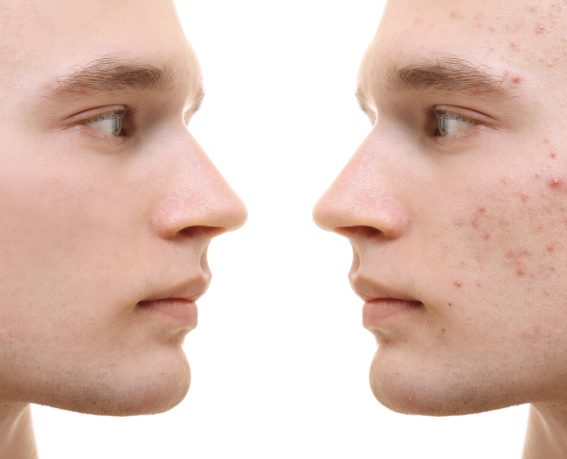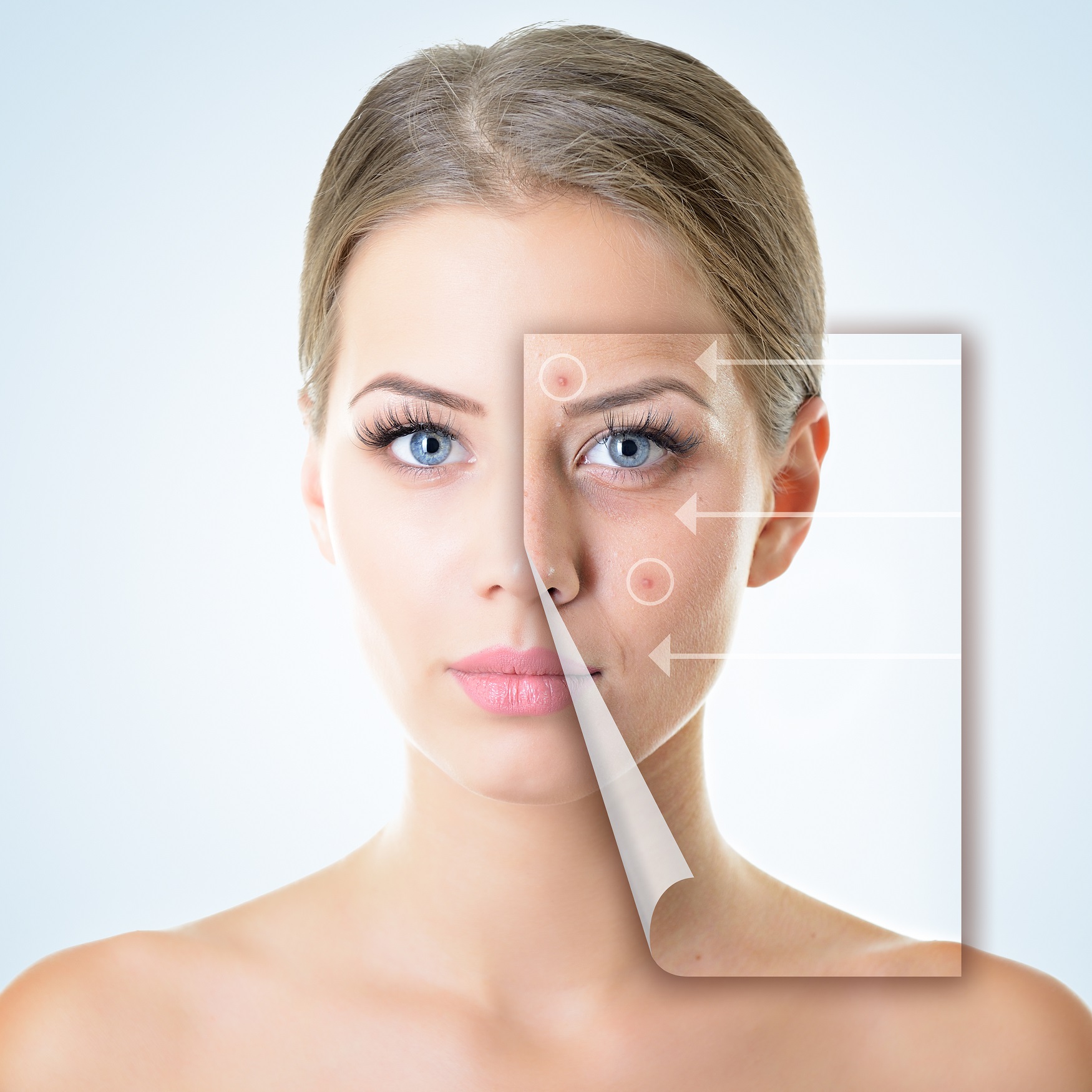Acne Treatment
Acne Overview
Acne is a chronic skin condition that typically manifests as pimples or pustules on the face, back, neck, shoulders, and upper arms. These blemishes form when follicles beneath your skin become clogged, which often results in inflammation, redness, and sometimes discomfort. A significant portion of people, from the tween years until about age thirty, experience regular acne flares. Acne generally falls into two broad categories: inflammatory and non-inflammatory. Inflammatory acne often involves an immune response leading to swelling and redness, whereas non-inflammatory acne (whiteheads and blackheads) does not trigger an immune reaction. Dermatologists and medical providers further classify acne as mild, moderate, or severe, and each level may require different interventions, ranging from topical applications to laser treatment protocols.
Symptoms and Indicators
The telltale signs of acne can vary depending on its type and severity. Whiteheads form when pus accumulates and creates a visible head, while blackheads result from trapped debris in a pore that darkens upon exposure to air. Pustules typically appear as raised, red bumps filled with pus, and cysts develop when the area becomes infected. These deeper, often painful blemishes may call for cystic acne treatment strategies to prevent long-term skin damage. Regardless of presentation, it is crucial to address persistent or severe acne promptly, as untreated outbreaks can lead to scarring and impact self-esteem.
Causes & Contributing Factors
Acne primarily arises from an excess of sebum—an oil produced by sebaceous glands that helps maintain skin moisture. During adolescence, hormonal shifts often surge oil production, making teens particularly vulnerable. However, hormonal acne treatment may also be necessary for adults experiencing breakouts due to fluctuations tied to menstruation or pregnancy. Other triggers can include heavy or cakey makeup, stress, certain medications, and poor skincare habits. For individuals dealing with blemishes beyond the face, such as back acne, specialized approaches like back acne treatment may be recommended to control outbreaks and minimize scarring.
Book An Appointment
Approach to Treatment
At New Skin Laser Center, Dr. Darush and his team customize every acne treatment to address each patient’s unique skin type, acne severity, and personal preferences. Combining multiple methods often yields the best acne treatments, helping control active breakouts and diminish existing scarring. Depending on your specific needs, you may be advised to undergo treatments like IPL Photofacial, Acne Detoxification, Blue Light Therapy with Levulan, Synthetic Retinoids, Topical Antibiotics, DHT Blockers, Azelaic Acid, Sulfur applications, Smoothbeam Laser, or LED Therapy. This comprehensive approach not only clears existing acne but also prevents future breakouts, enhancing both skin health and self-confidence.
Blue Light Treatment with Levulan
Among the most effective modern interventions is Blue Light Therapy, especially when used in conjunction with Levulan through Photodynamic Therapy (PDT). This innovative combination targets acne-causing bacteria, reduces inflammation, and can help prevent significant scarring. By focusing specifically on overactive oil glands, our IPL (Intense Pulsed Light) system delivers a targeted wavelength of light that kills bacteria and regulates sebum production without harming surrounding tissue. The minimal downtime makes it convenient for individuals who cannot afford extended recovery periods.
Photodynamic Therapy (PDT)
Photodynamic Therapy involves a photosensitizing drug (such as Levulan) and a specialized light source. After the drug is applied and allowed to incubate, it becomes activated when exposed to a specific wavelength of light, generating an active form of oxygen that destroys targeted cells. In dermatology, PDT is used to manage cystic acne, eliminate precancerous growths, and improve skin texture and tone. The fundamental principle is selective tissue destruction, which minimizes harm to healthy tissues while effectively addressing problem areas. While PDT has existed in various forms since the early 1900s, modern developments allow for more precise targeting and better outcomes for patients seeking the best acne treatment techniques.
Why Choose Our Clinic
When you visit New Skin Laser Center, we will design a personalized plan that may combine multiple therapies—like acne scar treatment, acne laser treatment, and appropriate topical or oral medications—to yield the best possible results. We recognize how acne can affect self-esteem and social life, and we aim to help you regain confidence by tackling both the visible symptoms and underlying causes. Our experienced providers are committed to ensuring safe, effective treatments that align with your lifestyle and aesthetic goals.
Northridge
8540 Reseda Blvd., Suite 103, Northridge, CA 91324 Tel: (818) 280-0700
Simi Valley
1189 Swallow Lane, Suite 100, Simi Valley, CA 93065 Tel: (805) 526-3365
FAQs
What is the most effective treatment for severe acne or cystic acne?
Severe or cystic breakouts often respond best to a combination of therapies, such as prescription medications, Photodynamic Therapy, and cystic acne treatment options like laser therapy. Personalized plans ensure that your treatment matches your skin’s unique needs.
How do I address scarring left by acne?
Various acne scar treatment methods are available, including laser therapy, chemical peels, and microdermabrasion. The right approach depends on the type and depth of your scars, which our specialists can evaluate during your consultation.
Can hormonal fluctuations be managed to reduce acne?
Yes. Hormonal acne treatment may involve birth control pills, anti-androgen medications, or lifestyle adjustments. A specialist can determine whether your breakouts are linked to hormones and recommend the most effective interventions.
Is back acne treated differently than facial acne?
In many cases, back acne treatment involves similar strategies as facial acne, but products must be specifically formulated for the thicker skin on the back. Proper cleansers, exfoliation methods, and occasional laser treatments help address persistent bacne.
Are laser treatments safe for all skin types?
Laser technology has advanced significantly, making acne laser treatment a viable option for most skin types. However, settings and treatment frequency should be tailored to the individual’s pigmentation and overall skin condition.
How soon will I see results from these treatments?
Individual results vary, but many patients notice improvement within weeks. Long-term, consistent application of prescribed therapies or products is key to achieving and maintaining the best acne treatments outcomes.
Does stress affect acne breakouts?
Yes, stress can raise hormone levels and increase oil production, potentially worsening acne. Incorporating stress management techniques—like exercise, meditation, or therapy—can enhance the effectiveness of your overall acne treatment plan.



